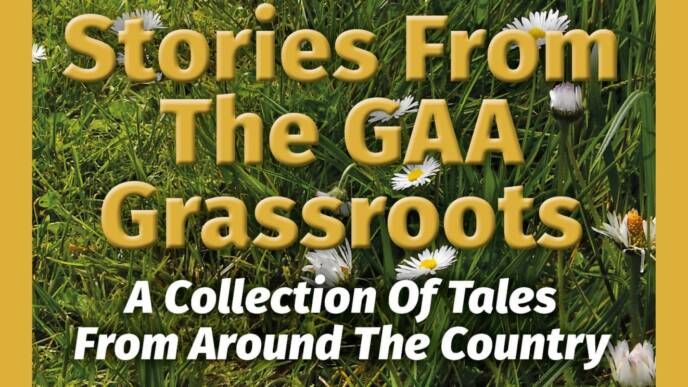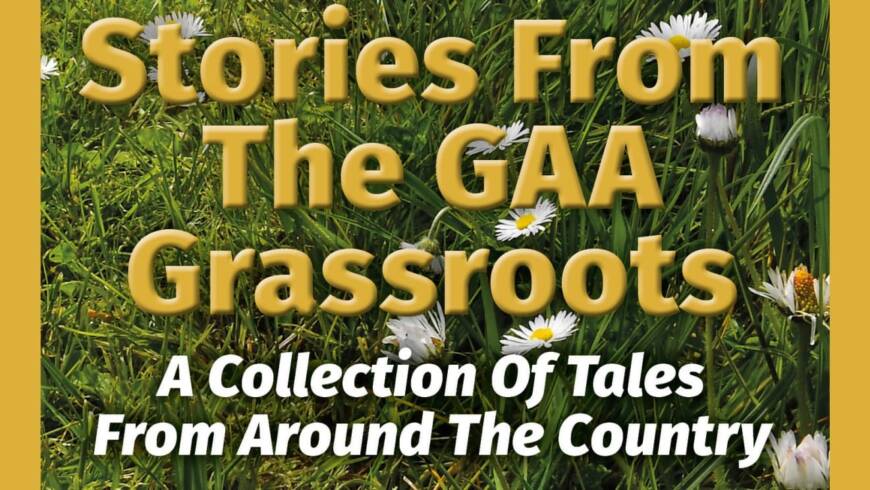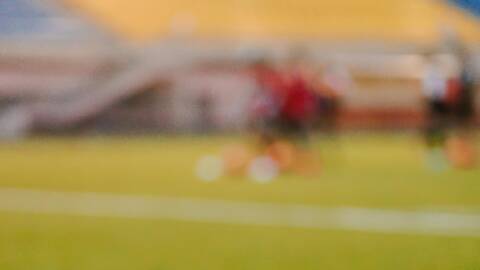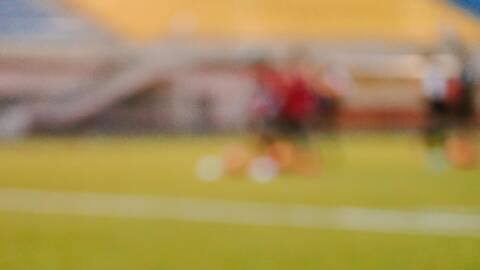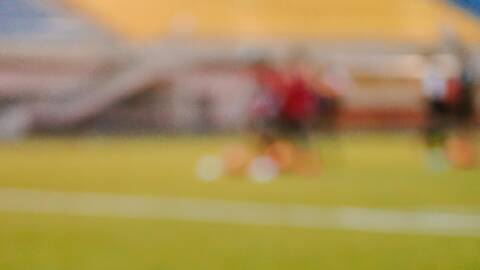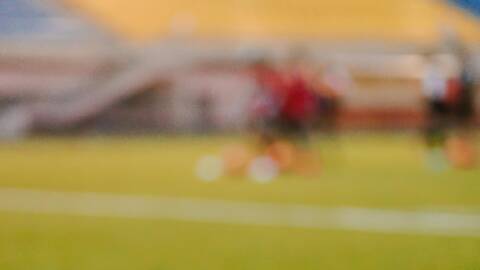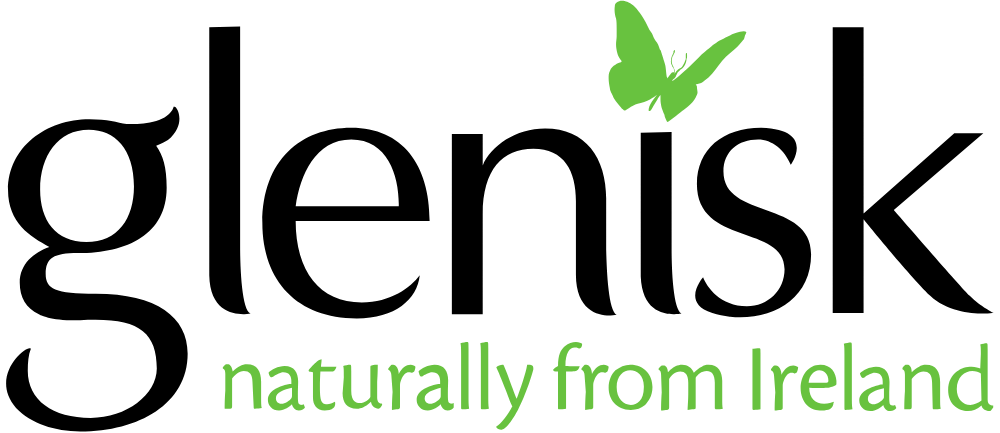By Cian O’Connell (journalist with www.gaa.ie)
So many tales exist and that is why PJ Cunningham remains particularly excited about the current ‘Stories from the GAA Grassroots’ project.
The response has been emphatic during the past fortnight and the journey, spearheaded by Cunningham and GAA Communications Director, Alan Milton, has most certainly commenced.
A Clara native, and now an enthusiastic Bray Emmetts clubman, Cunningham continues to derive significant satisfaction from Gaelic Games.
“For years I used to say to myself that you have so many stories in Clara, about people doing this and that,” Cunningham says.
“We had a split in the club with brother against brother. Nobody ever recorded it and I often said to myself why not? You have 136 years now and there will be a generation coming after us. By us I mean people in their 50s to 80s. So many stories will die.
“The other great Irishism in the people is telling stories, yarns. It used to happen people rambling to houses.
“I remember when I was little men used to come into my aunt’s house or our house and they would be talking about various things, but inevitably big matches and this heroic deed, what somebody did cowardly from the other team always, never your own team.
“Then the pub used to be the place where people lived out these storytelling episodes. We don’t know what way the pubs will ever come back after Covid 19. There could be an opportunity lost.”
Technology, though, has altered the landscape dramatically. “There isn’t the same dependency on people talking to people anymore,” Cunningham laments.
“Everybody has an iPhone, everybody has so many channels on the television, it is an art that is dying- storytelling. It certainly isn’t as strong as it was. What I would love to do is to get people to tell me their stories from around the country, from around the world with the diaspora.
“The funny stories, the feuds, friendships, the passion of playing, the bit of roguery about getting fellas off.”
Growing up Cunningham vividly recalls the debate and deliberation that surrounded matches. “Cowen’s pub in Clara was a big GAA pub, I’d have been in there listening to stories,” Cunningham vividly remembers.
“Some of the funniest things happened when people start talking about GAA matches or describing what people did at a GAA match, some row or some bit of skullduggery that went on.”
Cunningham is delighted by how people are reacting in a positive manner to the idea. “It is only out there two weeks now,” Cuningham remarks.
“There has been a rich harvest coming in all the time. Some of the older people are sending in letters.
“An awful lot of people in their 60s, 70s, and 80s would feel that they haven’t got the writing ability to put down on paper the stories that they have.
“There has been an amazing response through the GAA website and we sent out stuff ourselves to local newspapers and radio stations. It was on a couple of RTE programmes. There is a parish of people out there that goes right to the very grassroots.
“It is everybody. It isn’t just elite sport or one section of society. Every section of society is involved in it and it is why the GAA is such a powerhouse in modern Ireland.
“When you think British Rule was still in Ireland, it helped define your Irishness. It is now probably even more important in today’s world.
“We have everything in this world, it is a global village world in terms of modern communication. The GAA is still the bedrock, it is still the place you go to.
“Here in Bray Emmetts, be it a committee meeting, training, there is always something to be done. It is never about you. It is about the community, it is about getting better dressing rooms, better pitches, it is about the youngster’s coming on.
“The next generation, if you like. If you take hurling and football out of the GAA the best currency it offers is the sense of family, the characters, and the stories that evolve and revolve around those characters.”
One of the critical things knitting everything together is the passion that continues to exist for Gaelic Games. The strong belief that matters can develop and improve.
To simply prove the point the Offaly footballers’ fortunes are never far from Cunningham’s mind. Cunningham was an emerging young player when Eugene McGee steered the Faithful to the summit in 1982.
In the intervening decades Offaly have flickered occasionally and appeared to be showing real promise a decade and a half ago.
“Gerry Fahy was the best manager Offaly had since Eugene McGee,” Cunningham remarks. “The players loved him. Westmeath beat them by a point in Croke Park and Gerry was out the following year. I had become part of a committee to raise money so that we could get Offaly great again.
“It didn’t work out, but Gerry was such a gentleman. More than that he was such a good manager. As far as I’m concerned he is the one that got away from Offaly football.
“My regret for Gerry is that he didn’t train an All Ireland winning team because he was good enough to do it.”
Sport can be that cruel; Cunningham, the former Irish Independent and Sunday Tribune Sports Editor, is truly aware that people don’t necessarily get what they deserve.
It is vital, though, to keep trying because possibilities always exist proven by Ballpoint Press’ collaboration carried out with Eugene McGee.
“We’ve done a lot of books down through the years,” Cunningham admits. “I did Eugene McGee’s life story, ‘The GAA in My Time’. That was a labour of love. Eugene was my manager when I was Under 21 with Offaly and on the Offaly squad which I wasn’t good enough to make for ’82.
“I was hanging around there for a while before they saw through me. I did his book, but that was a labour of love.
“The truth is I’d be really proud of the fact that we did that book. Eugene didn’t want to do it. We didn’t see him dying so quick and I know for Marian and his family it is great to have that. Sometimes afterwards it is lovely to have those things.”
What Cunningham hopes to achieve is to document some of the drama and incidents that have been passed down through the generations. In Clara a relation of Cunningham’s, Ricey Scully, was a respected footballer and figure. “Ricey Scully used to be in great demand in the 60s,” Cunningham laughs.
“He was seemingly in a play, he was a very good singer and musician, he’d be in plays and pantos. He went down to play football in Tipperary, he was so good. He claims himself he scored 10 points in a 0-10 to 0-9 narrow victory. He saved a penalty too.
“Not only were the players and manager from the other team running after him, also the crowd were coming after him. He was trying to get out and he got as far as the car. It dawned on him that he had some garb from the play he was in.
“So he pulled the ecclesiastical collar out and stuck it on himself. So they all jumped back about 10 yards and said sorry that they didn’t know he was a priest. He said he was a priest in a hurry, that is why he wasn’t togging in.
“He jumped in the car and got out of there. He claims it is a totally true story, but there is always an element of a liberal sprinkling of imagination. I’ve never heard a story that was made worse by a good storyteller.”
Ultimately, that is the mission Cunningham wants to accomplish in the upcoming book. In recent years he has overseen several impressive pieces of work, alongside highly regarded GAA writers.
“We are very lucky in terms of the GAA books,” Cunningham acknowledges. “I obviously did (Seamus) Darby’s one last year myself, about that goal. We’ve a couple of other books that I’m very proud of.
“Enda McEvoy in Kilkenny did a book on ‘The Godfather of Modern Hurling’. Enda is a brilliant writer, one of the best that there is currently. Probably the book that got the most controversy was the book by Declan Bogue ‘This Is Our Year’.
“He took a player from every team in the Ulster Championship, the year before Donegal won the All Ireland. Another absolutely outstanding writer. When you have good writers it is very easy do good books.
“Another great writer is Paul Fitzpatrick in Cavan. He did two amazing books, the one last year on Charlie Gallagher was such a good book, so well written. He also did a book about Cavan beating Kerry out in New York in ’47. They are some of the books we’ve done as a little publishing company.”
The focus is now very much on providing another worthy addition to the burgeoning list in the GAA collection.
For further information email pj@gaastories.ie or @communications@gaa.ie
By kenny Fri 10th Jul
